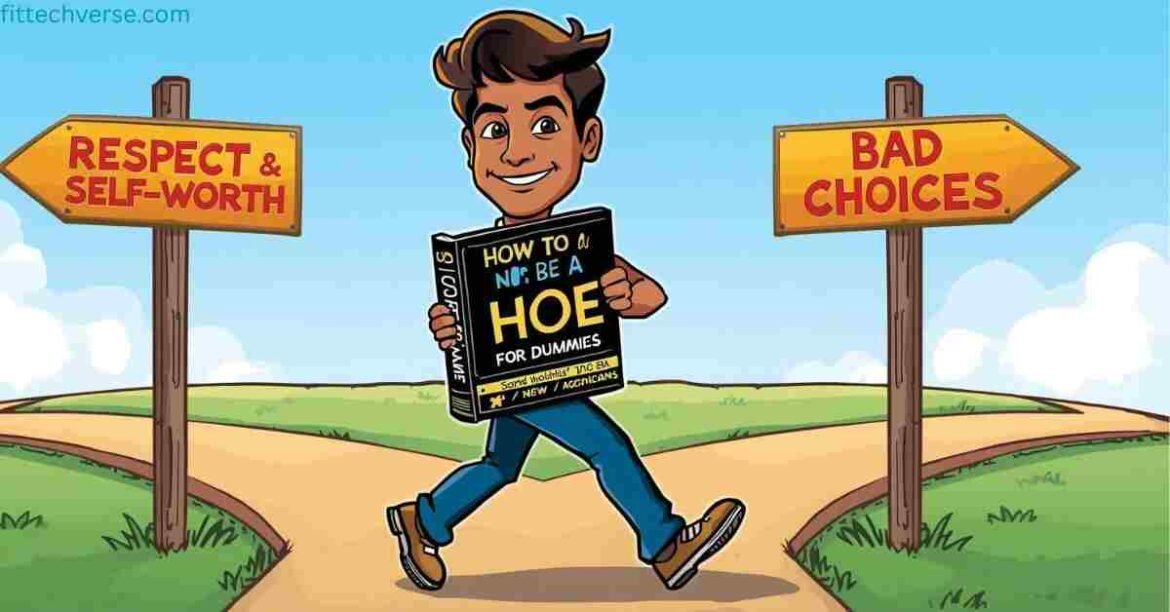Introduction: Understanding the Phrase
In today’s era of casual hookups, social media validation, and blurred relationship boundaries, many people are searching for clarity, confidence, and self-respect. If you’ve ever Googled ‘how to not be a hoe for dummies’ or even ‘Why Was Roe v. Wade Overturned for Dummies,’ chances are you’re looking for simple, practical explanations that cut through confusion. In this case, the goal is guidance on protecting your self-worth, setting healthy boundaries, and staying authentic in a world full of distractions. This guide isn’t about judging choices—it’s about empowering you with self-discipline, understanding your value, and creating a lifestyle built on respect, purpose, and long-term fulfillment.
What Does “Being a Hoe” Actually Mean?
A Cultural Context
The term ‘hoe’ is often used as slang to describe someone involved in frequent casual relationships without much emotional connection or consideration for consequences. However, it’s important to separate a person’s choices from their identity. Everyone makes decisions for different reasons—social pressure, insecurity, lack of guidance, or simply trying to fit in. This guide isn’t about shaming anyone—it’s about offering a path toward healthier choices and stronger self-worth.For more on building confidence, check out the American Psychological Association’s guide on self-esteem.
Self-Awareness: The First Step
Lasting change begins with honesty. You can’t improve what you don’t acknowledge. Taking a clear look at your habits and motivations—whether they stem from attention-seeking, low confidence, or peer influence—is the first step toward growth. Recognizing the ‘why’ behind your actions gives you the power to shift toward more fulfilling and self-respecting choices.
Set Personal Boundaries
Know Your Standards
To stop engaging in casual, meaningless interactions, you must first know your standards. What kind of people do you want around you? What values do you expect in a partner? By setting clear emotional and physical boundaries, you create a filter for your life.
Practice Saying No
Saying “no” is not rejection—it’s protection. Many find themselves in situations they regret because they didn’t want to disappoint others. Learn to prioritize your long-term self-respect over short-term validation.
Build Self-Worth Outside of Relationships
Discover Your Value
When you truly understand your worth, you won’t need to seek it through attention or affection. Spend time developing your talents, goals, and passions. Confidence doesn’t come from being desired—it comes from being fulfilled.
Avoid Using Attention as Validation
Getting likes on photos, flirtatious texts, or short-term hook-ups may feel good momentarily, but they won’t fill the void of true self-love. Stop depending on others to tell you you’re enough. Start telling yourself.
Choose Relationships with Purpose
Don’t Date Out of Boredom
A common habit that leads to repeated casual behavior is dating simply because you’re lonely or bored. Instead, focus on building friendships and meaningful bonds. Real connections take time.
Focus on Emotional Intelligence
Learn to identify emotional maturity in yourself and others. Avoid people who encourage you to disregard your values. Healthy relationships are built on trust, not temptation.
Cut Off Toxic Influences
Audit Your Circle
If your friends are constantly encouraging reckless behavior, partying, or meaningless dating, it’s time to reflect. You become like the people you spend time with. Choose those who push you to grow, not settle.
Limit Exposure to Hypersexual Content
Social media is full of content that glorifies superficial lifestyles. If your feed is influencing your self-image or behaviors, clean it up. Follow pages that promote self-development, mental health, and productivity.
Develop Discipline and Goals
Have a Vision for Your Life
People with direction don’t easily get distracted. Set short-term and long-term goals for your career, health, and personal growth. Once you start progressing, you’ll naturally let go of behaviors that don’t align with your vision.
Replace Old Habits with New Ones
Instead of chasing attention or parties, spend time learning a skill, hitting the gym, reading, or volunteering. These habits will boost your confidence and shift your focus from short-term pleasure to long-term purpose.
Learn to Be Alone Without Feeling Lonely
Solitude Is Powerful
Being alone doesn’t mean being lonely. Use your alone time to reflect, meditate, and plan. Learn to enjoy your own company. When you’re happy alone, you won’t need someone else to complete you.
Heal from the Past
Some people repeat self-destructive behavior because of unresolved trauma or past relationship wounds. Seek help if needed—therapy, journaling, or talking to a mentor can help you grow emotionally.
Be Honest with Yourself and Others
Don’t Pretend to Be Someone You’re Not
If you want to change your lifestyle, don’t feel pressured to explain yourself to everyone. But also, don’t pretend you’re still someone you’re trying to grow away from. Be real, even if that means losing people who only liked the old version of you.
Communicate Your Intentions Clearly
In dating, be upfront. If you’re looking for something serious, say it. Don’t entertain situationships that blur lines. Clarity protects your peace.
Conclusion: Respect Starts With You
The search for “how to not be a hoe for dummies” is not about labels—it’s about choices. Every action reflects your self-worth and direction in life. Whether you’re making a comeback from a reckless past or just want to set better boundaries, the key is staying consistent with your values.
Remember:
- You’re not your past.
- You’re not what others say.
- You are what you choose to become, every single day.
By choosing respect, direction, and discipline, you’re choosing to live a life that honors your worth.
